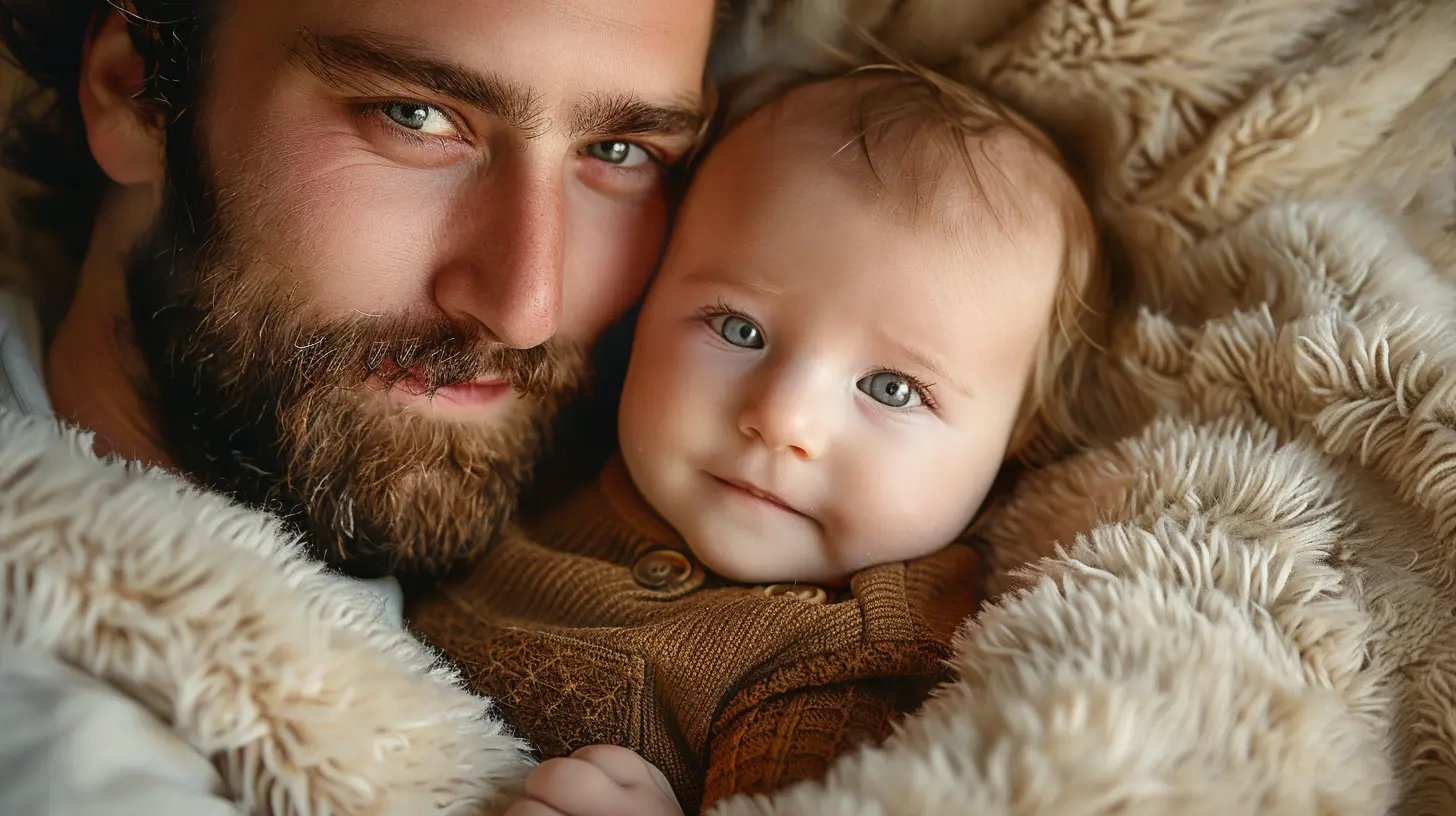Mindful Parenting: How to Be More Present with Your Child
16 November 2025
Parenting—it's not for the faint of heart. It’s messy, unpredictable, and filled with enough emotional highs and lows to rival a rollercoaster. But at the heart of it all, there’s one thing we all want: to raise happy, emotionally healthy, and connected kids.
In a world buzzing with distractions, from never-ending to-do lists to smartphone notifications every five seconds, being fully present with your child can feel like a tall order. But that’s where mindful parenting comes into play. It's not about being perfect. It's about showing up—really showing up—for your child, moment by moment.
So, what exactly is mindful parenting? And how can you invite more presence into your parenting journey? Let’s unpack it together.
What Is Mindful Parenting Anyway?
Mindful parenting isn’t about burning incense and meditating for hours (though hey, if that’s your thing, rock on!). At its core, mindful parenting means being emotionally available, aware, and attentive in your interactions with your child.It's about responding instead of reacting. Listening with your full attention. And yes, taking a deep breath before snapping when your toddler decides red paint belongs on the dog.
Think of it like this:
Imagine you're trying to have a heart-to-heart conversation, but the other person keeps checking their phone. Frustrating, right? Kids feel that too. They’re incredibly attuned to our attention levels. When you’re mentally elsewhere, they notice. Mindful parenting bridges that gap and deepens connection.
The Beautiful Benefits of Mindful Parenting
Let’s start with the “why” because hey, you’re busy, and this better be worth your time, right? Here’s what bringing mindfulness into your parenting can do:1. Stronger Emotional Bond
When you're present with your child, you’re sending a powerful message: “You matter to me right now.” That kind of emotional attunement builds trust and strengthens your relationship over time.2. Reduced Parental Stress
Mindfulness helps you manage those overwhelming moments when you’re just about ready to hide in the pantry with a bag of chips. Becoming more aware of your own emotions allows you to de-escalate and respond thoughtfully.3. Better Behavior from Your Child
Kids who feel seen and heard are more likely to cooperate. They don’t have to act out to get your attention if they already have it. Mindful parenting can reduce tantrums, improve communication, and encourage emotional regulation.4. More Joy in the Everyday
When you slow down and tune in, you start cherishing the little things—the giggles, the bedtime snuggles, the way they mispronounce “spaghetti.” These moments are fleeting. Mindfulness helps you savor them.
The Building Blocks of Mindful Parenting
Let’s break it down into actionable parts. You don’t need to overhaul your entire life—just start small and keep showing up.1. Awareness of Your Own Emotions
Parenting can stir up a lot of feelings—anger, anxiety, guilt, joy—all within the span of five minutes. Before you can be present for your child, you’ve got to understand what’s going on inside you. Ask yourself:- Why am I feeling triggered right now?
- Am I reacting to this situation or to something else entirely?
- What does my child truly need at this moment?
When you become more emotionally aware, you gain control instead of letting emotions drive the bus.
2. Active Listening
We all want to be heard. That includes kids. Sometimes, they don’t need advice or a solution. Sometimes, they just need to know someone is really hearing them.Try this:
- Make eye contact.
- Put down your phone.
- Mirror back what they said: “So you’re upset because your toy broke?”
- Pause before jumping in with a fix.
That’s when magic happens. They feel validated. Connection deepens.
3. Non-Judgmental Acceptance
Kids have big feelings. Meltdowns, defiance, clinginess—it’s all part of the ride. Rather than labeling their emotions as “bad” or trying to fix them right away, try to meet them where they are.Say something like:
- “It’s okay to be upset.”
- “I see that you’re really frustrated right now.”
- “I’m here for you.”
This doesn’t mean letting go of boundaries or discipline—just that you’re honoring their emotional experience first, which makes discipline more effective later.
Practical Tips to Be More Present with Your Child
Okay, let’s get into the good stuff—the how-tos you can actually start using today. Here are some bite-sized, doable strategies you can build into your day:1. Schedule “Phone-Free” Time
Designate chunks of time during the day when screens go away—yours and theirs. Maybe it’s during dinner, bedtime, or after school. Use these windows to connect without distractions.Even 15 minutes of uninterrupted attention can make a world of difference.
2. Create a Mindful Morning Routine
Mornings can be complete chaos, but they also set the tone for the rest of the day. Try waking up just 10 minutes earlier to ground yourself before the rush begins.Practice a little deep breathing or gratitude before stepping into “parent mode.” You’ll be calmer and more present, even when the toast burns or someone can’t find their shoes for the fifth time.
3. Practice the “One-Minute Pause”
This is your secret weapon. Whenever you feel overwhelmed or on the verge of yelling, pause for just 60 seconds. Take three deep breaths. Feel your feet on the ground.Ask yourself: What does my child need right now, and what do I need so I don’t lose my cool?
This creates space between your reaction and your response.
4. Make Eye Contact and Touch
Sounds simple but it's powerful. Eye contact reassures your child that you're really with them. A gentle touch on the hand or a warm hug can calm both of you and build connection instantly.5. Reflect Together at the End of the Day
Create a bedtime ritual where you both reflect on your day. Ask your child:- “What was your favorite part of today?”
- “Did anything make you feel sad or mad?”
- “What are you looking forward to tomorrow?”
This isn’t just about reflection—it’s about strengthening your bond.
Common Mindful Parenting Challenges—And How to Overcome Them
Let’s keep it real: mindfulness doesn’t come naturally to most of us. Especially not when life is hectic, emotions run high, and the laundry pile is taller than your toddler. Here are some common struggles and what to do about them:Challenge: You’re Too Tired
Parenting is exhausting. When you’re running on empty, it’s hard to be mindful. Start with self-compassion. You don’t have to be a Zen master—just try to be present for one moment at a time.Try This: Short breathing exercises, 5-minute meditations, or simply taking a break in the bathroom to regroup.
Challenge: You Keep Getting Distracted
If your mind constantly drifts to everything you have to do, welcome to the club. It’s normal.Try This: When you catch your mind wandering, gently bring it back to the moment. It’s like training a puppy—it takes patience.
Challenge: You Feel Like You're Failing
We all lose our temper. We all scroll our phones too much. That doesn’t mean you’re a bad parent.Try This: Apologize when necessary. Reflect. Repair. Kids don’t need perfect—they need real. They learn emotional intelligence from watching how you handle your mistakes.
Teaching Mindfulness to Your Child
Here’s the cool part: when you practice mindful parenting, your child learns how to be mindful too. They soak it up like tiny sponges.Ideas to Try Together:
- Belly Breathing: Lay down with a stuffed animal on your bellies. Watch it rise and fall.- Mindful Walks: Notice sounds, colors, and smells around you.
- Gratitude Jar: Write down one thing you’re both thankful for each day.
Over time, your child will learn to check in with their feelings, regulate their emotions, and be kinder to themselves and others.
Final Thoughts: Give Yourself Grace
Mindful parenting isn’t a destination. It’s a practice. Some days you’ll be fully tuned in like a parenting pro, and other days you'll zone out halfway through reading “Goodnight Moon” for the millionth time. That’s okay.What matters most is your intention to connect, to grow, and to be just a little more present each day.
Remember, your presence is the greatest gift you can give your child—and yourself.
all images in this post were generated using AI tools
Category:
Parenting SupportAuthor:

Kelly Snow
Discussion
rate this article
1 comments
Tenley McAleer
Embrace each moment, cherish their growth!
November 21, 2025 at 5:04 AM

Kelly Snow
Thank you! Embracing each moment truly enriches our parenting journey.


